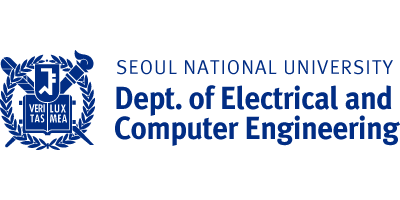Professor Jong-Ho Lee, [Electronic Times Essays] A bold future led by innovations in the field of science and technology (Electronic Times, 2022.12.26)

Jong-Ho Lee, the Minister of Science and ICT
The world now looks very different from what it did just 5 years ago. The impact of the pandemic has not yet been erased, but the escalation of the competition for technological supremacy has led to a reorganization of the global supply chain. Geopolitical changes, including wars, have resulted in an energy crisis and increased inflation pressures around the world. Extremely abnormal climate has made the impact of climate change visible, and carbon neutrality is now being emphasized as the calling of the era. Digital technologies such as artificial intelligence and 5G are changing the face of our lives both economically and socially. It is more important than ever to predict and prepare for the future amid the big transition. Expectations for science and technology to solve global problems such as climate change and pandemics, and national problems such as low birth rate and the aging population, are on the rise. Preparation of national measures to redesign the future of Korea based on scientific and technical innovation is urgently required in these times.
The ‘5th Science and Technology Basic Plan (2023~2027)’, which was confirmed at the National Science and Technology Advisory Council’s meeting on the 14th, took on this responsibility and proposed the goals for development in the scientific field for the next 5 years, and the direction that the government should focus on. The main directions of the basic plan are as follows. First, strengthen the strategic nature of national R&D through selection and concentration. Second, create a private sector-centered science and technology innovation ecosystem. Thirdly, based on science and technology, solve current national issues, such as carbon neutrality and digital transformation. The foundations for scientific and technological policies to be taken by 40 governmental bodies have been laid.
The importance of the ‘5th Science and Technology Basic Plan’ can be examined from two perspectives. Firstly, considering the internal and external conditions, the value that science and technology hold in the future is infinite. Recently, the United States and Japan enacted the ‘Semiconductor and Science Act’ (August) and the ‘Economic Security Promotion Act’ (May), respectively, to significantly strengthen national support for strategic technologies. As technology goes beyond economic value and emerges as a key factor in diplomacy and security, technology is adding details to national strategy through the recognition that technology will become the lever for future international competitions. The importance of science and technology is increasing in everyday life. Abnormal weather conditions such as record heavy rains, heat waves, and droughts experienced by many countries around the world, and the pandemic have solidified the value of technologies related to carbon neutrality and cutting-edge biotechnology. The importance of the basic plan, which is the ‘master plan’ of national science and technology policy, is more important than ever.
Secondly, it serves as a top-level legal plan that encompasses the government’s science and technology policies. The ‘5th Science and Technology Basic Plan’ focuses on securing consistency and linking plans related to science and technology across all ministries and securing consistency. For example, the ‘Future Risk Response’ task of the basic plan suggested the advancement of cutting-edge technology that would reduce the extent of disaster damage and the expansion of field application as major directions for the next five years. The Ministry of Public Administration and Security, in accordance with this, will establish the ‘Comprehensive Plan for Disaster and Safety Management Technology Development (2023~2027)’ and set up detailed technology development plans. As such, the plans related to science and technology development for the 100 government bodies will be continuously monitored so that they can be prepared with consistency to the basic plan.
The biggest feature that differentiates the ‘5th Science and Technology Basic Plan’ from the existing plans is that while the existing plans focused on developing technologies and improving the R&D system for science and technology, the new plan expands the role of science and technology for problem-solving. It was contemplated how science and technology could improve the lives of the researchers working in the field of science and technology, as well as the entire public including students, youths, and entrepreneurs, and what changes should be sought after. The result was taken as the basic plan’s task and the main objective.
For researchers, a program that enables them to focus on stable and long-term research in a single field will be established and a foundation for an easy search and utilization of data required for research will be provided. Through these efforts, we will assist researchers in strengthening their capabilities and facilitate international cooperation to increase the share of Korea’s top 1% cited papers.
We will support students and youths in developing digital capabilities and maturing into key talents for new industries and technologies. We will support universities and public research institutes to carry out fundamental research stability, while also expanding support for the commercialization of research results. In addition, it is planned for the groundwork for unicorn companies to emerge to be laid out by supporting the discovery of research results, start-ups, and growth in an interconnected manner.
In order to ensure that the needs of private companies are reflected in the national R&D strategy in a timely manner, public-private cooperation will be further strengthened by operating a permanent R&D consultative body instead of a one-time-off, fragmentary collection of opinions. Small and medium-sized enterprises will receive customized support according to their current capabilities. In addition, to attract private R&D investment, which has recently been on the decline, we plan to discuss and plan the use of various policies such as the relaxation of taxation and regulations at the pan-governmental level.
In addition, in order to revitalize the local economy, which recently has been suffering from difficulties such as population decline, a foundation for excellent research personnel and new technologies to settle in regional areas will be created. From the perspective of solving national issues, the role of science and technology in various fields, from realizing carbon neutrality to catalyzing digital transformation, promoting public health, disaster response, predominating supply chains, fostering strong armed forces based on science and technology, and expanding scientific territories, such as space.
Since the first five-year technology promotion plan was established in 1962, Korea has now grown into the 10th largest economy in the world. This was possible because of the continuous investment and interest in science and technology. The qualitative growth of science and technology is urgently needed for Korea to take another leap forward from the growth we have made so far. The ‘5th Science and Technology Basic Plan’ will play a pivotal role in this growth and draw a future for a strong Korea of happy people and a dynamic economy.
Jong-Ho Lee, the Minister of Science and ICTs
◎ Minister Jong-Ho Lee is…
Minister Jong-Ho Lee is a world-renowned scholar in the field of semiconductors, and in May, he was appointed as the first Minister of Science and Technology under Yoon’s administration. He graduated from the Department of Electrical Engineering at Kyungpook National University and received both his master’s and doctoral degrees from the Department of Electrical Engineering at SNU. He previously served as a researcher at the Korea Electronics and Telecommunications Research Institute and the MIT Microsystems Technology Laboratory. He served as a professor at Wonkwang University, Kyungpook National University, and was a professor at SNU since 2009. In 2016, he was appointed as a member of IEEE, and since 2018 he served as the director of the SNU joint semiconductor research center. In 2002, he opened a new chapter in the field of semiconductor device technology by developing the world’s first 3D Bulk FinFET. With such abilities and knowledge, Minister Lee is focused on discovering future sources of economic growth based on science technology and information and communication technology (ICT).
Source: https://ece.snu.ac.kr/community/news?bm=v&bbsidx=53121
Translated by: Do-Hyung Kim, English Editor of the Department of Electrical and Computer Engineering, kimdohyung@snu.ac.kr


